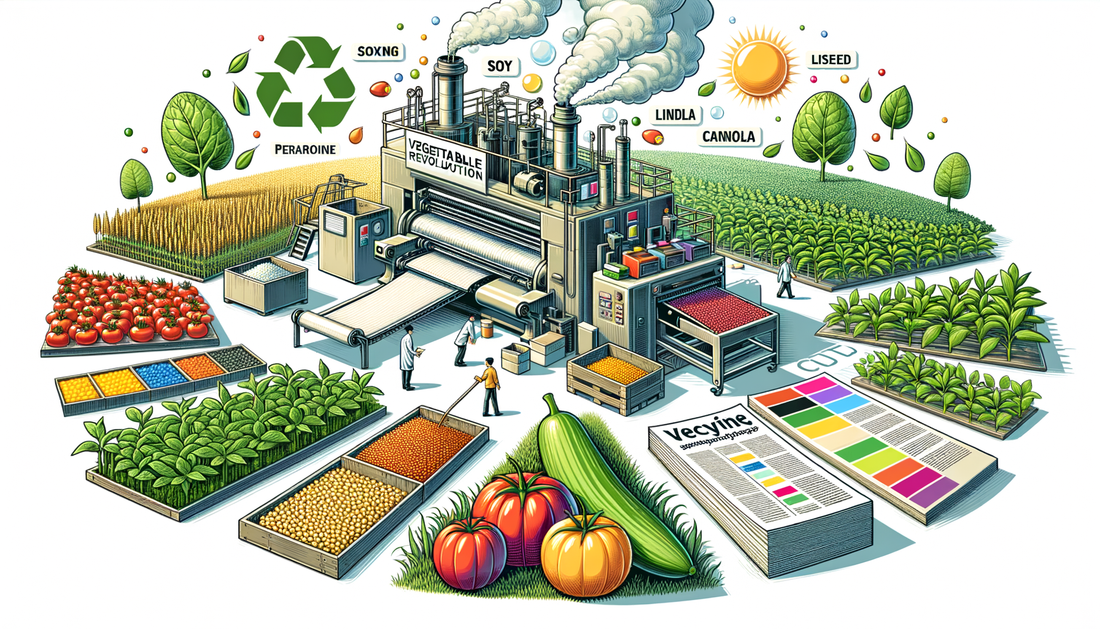Vegetable-Based Inks: A Guide to Eco-Friendly Printing
Tony Torres
Vegetable-Based Inks: Revolutionizing Eco-Friendly Printing Practices
Welcome to the green revolution in the printing industry! As the world moves towards more sustainable practices, it's crucial to explore how even the ink we use can make a significant environmental impact. This comprehensive guide delves into the world of vegetable-based inks, showcasing their benefits and why they are an essential component of eco-friendly printing.
The Rise of Vegetable-Based Inks in Sustainable Printing
With the increasing awareness of environmental issues, the printing industry has been under scrutiny for its use of traditional petroleum-based inks. These inks not only contribute to pollution but also pose health risks due to their volatile organic compound (VOC) emissions. Enter vegetable-based inks, a cleaner and greener alternative that is gaining popularity for its minimal environmental footprint.
Understanding the Composition of Vegetable-Based Inks
Vegetable-based inks are made primarily from renewable sources such as soy, linseed, canola, and other vegetable oils. These natural ingredients replace the petroleum oil content, resulting in a more sustainable printing option. Not only do they reduce the reliance on fossil fuels, but they also offer better degradability and easier recycling processes.
Benefits of Switching to Vegetable-Based Inks
Environmental Advantages
One of the most compelling reasons to switch to vegetable-based inks is their reduced environmental impact. These inks emit lower levels of VOCs, which leads to better air quality and a healthier ecosystem. Additionally, they are easier to remove during the paper recycling process, enhancing the recyclability of printed materials.
Health and Safety Improvements
Vegetable-based inks are not only better for the planet but also for the people who handle them. With lower toxicity levels, they pose fewer health risks to printers and consumers alike. This makes them a safer choice for packaging, especially for food products where ink contact is a concern.
Quality and Performance
Contrary to the misconception that eco-friendly products compromise on quality, vegetable-based inks deliver vibrant colors and high-quality prints. They have excellent on-paper properties, providing a comparable—if not superior—printing performance to traditional inks.
Implementing Vegetable-Based Inks in Your Printing Process
Adopting vegetable-based inks is a straightforward process for most printing operations. It often requires minimal adjustments to existing equipment and can lead to cost savings in the long run due to the efficient use of ink and reduced waste. Printers can also leverage the use of vegetable-based inks as a selling point to attract environmentally conscious customers.
Challenges and Considerations
While the benefits are clear, there are considerations to keep in mind when switching to vegetable-based inks. Availability and cost can be potential barriers, as these inks may not be as widely accessible as traditional options. However, as demand increases, these challenges are likely to diminish, making vegetable-based inks a viable choice for more printers.
Embracing the Future with Vegetable-Based Inks
The shift towards vegetable-based inks is more than just a trend; it's a necessary step towards a more sustainable printing industry. By choosing these eco-friendly inks, printers and consumers alike can contribute to a healthier planet without sacrificing quality or performance.
Ready to make a positive impact on the environment with your printing choices? Explore our range of vegetable-based ink products and join the eco-friendly printing movement today!
